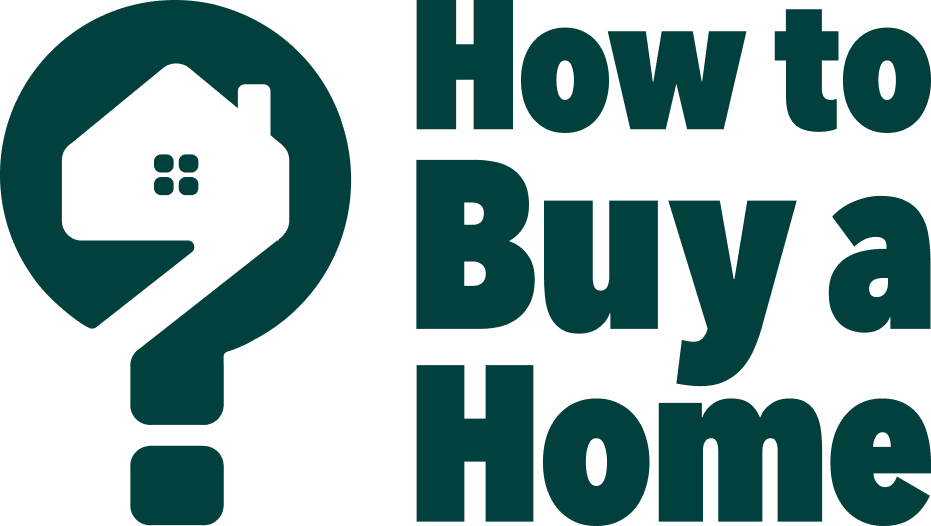
One thing that comes up a lot when you’re buying your first home is the title. Yes, that’s our real estate term for today. Join David Sidoni in this edition of everything you need to know about buying a home, and this episode is all about TITLE.
—
Ep 144 – First Time Home Buyer Terms And Definitions From A-Z – “T” Part 2
Glossary Of Terms First-Time Home Buyers Need To Know – T For Title
In this episode, we wrap up the letter T with just one word and everything that comes with it. Title. What the heck is title? It’s important for you to know, so let’s find out.
—
How are you doing, gang? I have several titles. Speaking of title, some of my titles are self-proclaimed, and some have been bestowed on me by my audience. I’ve been dubbed the Unicorn Wrangler. I’ve also been called a Wise Boomer Dad. Once again, not a Boomer. I am Gen X. I like that one. That came from an audience. She didn’t have a Boomer dad to help her when she was growing up. I’m glad I could fill in. The self-proclaimed title I’ve given myself is the Leader of the First Time Buyer Revolution. I can’t lead a revolution without explaining what in the heck we’re talking about. It’s time for definitions. This is T.
This is a little bit of a shorter episode, so I’m going to put the end right up front on this one. This entire terms and definitions catalog is here for you and for anybody that you want to share with for free. I’m gathering these up for you and breaking them down. It’s been lots of fun, but it’s also been a lot of work too. If you want to keep getting more content like this, I’m graciously asking you two things. Number one, tell me what else you want to know about. I’m sitting here in the studio, taking a stab and going, “This is what you should know.”
Go to HowToBuyAHome.com and Ask David or Ask A Question. There’s a button right there for it. Let me know what topics you want to know about. I don’t know if you don’t tell me. The second thing I want to ask you is, please share the show. I am giving this out for free because this revolution does mean a lot to me. Doing this show like this and giving this stuff out for free is not a typical way to make a living. The more people know about me, the more people that I can help.
Many of the folks I’m helping for free with all the stuff I’m giving out there, and I truly love that. I get emails all the time from readers sending me pictures of them in front of their houses. I had one. This girl was jumping up in front of her house. It was awesome. I love giving that guidance and knowing that people are out there closing on a home. That is great. In fact, that’s the goal of the revolution. If you can share it with others and we get more people coming into the show, I can keep dropping this free knowledge because if enough people join the revolution, eventually, some business is going to trickle down to me, and I keep doing this for free. Please share if you can.
Back to what you came for, which are free, crazy, and boring definitions. This one’s important. T is for Title. It’s a term that’s going to come at you a lot when you’re buying your first home and something you should understand. There are two big pieces to title. The first one is what the title is. The second one, people are going to ask you how you want to take title. The answer to how I want to take my title is not hold the pickles. You have to understand what that means. Starting with the definition of what title is, it defines who owns and has the right to real property. We’ve already talked about the difference between real property and personal property in previous episodes.
[bctt tweet=”The title defines who owns and has the right to real property.” via=”no”]
Remember, real property is not the opposite of fake property. Real property is the home and the land underneath it, unless it’s a condo or a townhome. In that case, the real property is the floor, wall, and roof. What title does is declare who owns and has the rights to the house. The way it works is when somebody says that they’re on the title of the home, it means they have some kind of legal ownership of the property.
What the title is includes the legal description of your home, which is different than your address. You get a title like there’s a number for it. It’s a jumbled mess of incomprehensible words and numbers that you’ll likely never have to worry about in your entire life except when you’re getting ready to buy your home. It’s known as the legal investing. That’s also called the LNV, which is something you might hear when you’re going through the process.
That’s going to bring us to point number two, which is vesting or how you take title. I still take mine with extra cheese. My title rep was sitting here when I wrote this, and he was freaking out. He wanted me to tell you that taking title is very important, or at least that’s what he says. The way you take title can affect how you are taxed on a property. The way you take the title is going to affect how you’re taxed on the property and what happens to your interest or ownership if you become unalive, pass away, or leave the planet through a portal and you’re no longer physically here. Taking title or vesting got some big ramifications, and there are several methods. Tenants and common and joint tenants are the most common ways that you can take title. This is known as taking title or vesting.
Before you make the decision about how you want to take title, realize that this is a big deal in your life. Your realtor can advise you on certain things but not this thing. They’re going to be able to help you out with negotiating the price and the appraisal, but when it comes to taking title, you should seek counsel from a CPA, a family estate planner, or a trust attorney. If you don’t have one, go ahead and ask your unicorn realtor or lender to recommend them because you are hardcore adulting now. The next part of title is title insurance. This is going to be something that’s not just a random term that you might get. This is something that is going to happen to you when you buy a home.

There are two title insurance policies. You have your owners and lenders. The owner’s policy is sometimes called a title commitment. For those of you with commitment issues, suck it up because you need this. This is part of your closing costs. How much, you ask? Guess what? I don’t know. I can’t tell you. It’s going to be different everywhere for everybody depending on how much the house is and all the different stuff. No, you cannot google it. This is part of the giant non-specific estimate that is your closing costs.
Your closing costs are an estimate. It’s always going to be an estimate. There is no website, app, or quick answer. Your closing costs are a mystery, and no one can give you an accurate number until you are fully under contract. Stop stressing. Stop asking and just go ahead and save up an extra 2%, 3%, 4%, or 5%. Part of those closing costs is going to be this owner’s title insurance policy. This is going to be real important. This is going to protect you against the issues like tax liens or other legal claims mostly regarding the ownership of the property.
Unlike other types of insurance, you don’t need to pay for title insurance every single month. The way you get your title insurance policy is a one-time single payment at closing. It protects you for as long as you own the home or until you refinance, in which case you need to get a new policy. That one-time fee for this policy is calculated based on the purchase price of your home. It can be paid for by the buyer or seller. Maybe it might not be part of your closing cost, depending on how it was negotiated with your offer on the home. See? I can’t tell you what the closing costs are. The buyer pays for them, and sometimes the seller pays for this.
Breaking it down more in layman’s style, this insurance is there for you. If the person selling the house is a scam artist and not the real owner, you’re covered through this insurance. You are also protected against any previous owners who come in with claims or liens. When you sell a home, you are guaranteed to work with a title company that you’re going to get what’s called a clean title. You’re going to get that at the time of your closing. Here’s a fun fact.
The number one claim, the thing that gets claimed the most on owner’s title insurance policies, are city code violations. If you close on a home and the city hits you up and says, “You have a code violation. Your fence is too high. That extra structure can’t be there,” and anything that they deem substandard in their city codes, the cool thing is you don’t have to worry about any of those things because you are covered by your owner’s title insurance policy. The second policy, that one’s for the lender, the lender title insurance. If they’re going to fork over all that cash and give it to you, they want to make sure they’re covered. It’s going to be based on your loan amount, not the purchase price. This one is usually paid by you at the closing.
[bctt tweet=”A fun fact: The thing that gets claimed the most on owner’s title insurance policies are city code violations.” via=”no”]
The next T is a Title Report Search. If you hear this term, all of this is a check on public records on your specific property. It examines the public records for the history of the home, the sales, the purchases, the tax, and any other types of liens or encumbrances. The next T is a Title Service Fee. This is the fee for making the sale all official and stuff. This is the big old thing you need to do, or someone’s got to do to make sure that your sale is legit. Interestingly enough, this is one of those fixed closing costs that happen. This is going to be the first 1% to 1.5% of your closing costs, and it’s based on your purchase price.
As for the rest of the closing costs, I already told you. It’s an estimate. I can’t do anything about it, and neither can you. Our next T is Title Vesting. I went over this when I was already talking to you about title. Vesting defines who owns a certain property, therefore, who’s going to be liable for the property taxes and other legal matters as well as how the property can be sold. The way you hold title can be several different ways with several different individuals. If you use certain types, you can do it where some people have different percentages of the home doesn’t have to be split evenly.
Once again, this is very important. Before you make the decision, you need to seek counsel from a CPA or a family estate planning or trust attorney or ask your unicorns for a recommendation if you don’t have one of those. Again, it’s hardcore adulting stuff. That’s title. I already did the ending, so go to HowToBuyHome.com and Ask David and give me some suggestions. Ask me what you want to know about, and we’ll do it in future episodes.
In conclusion, you are rad. Please share the show and chin up going into 2023. No matter what happens in the volatile economy, if you manage to stay afloat, remember that during the down times in our economy, that’s when the rich get even richer by taking advantage of the low points that happen when our economy stumbles a little bit. Get to planning. You should do this too. Do you know why? You can do this.
Important Links
This podcast was started for YOU, to demystify things for first time home buyers, and help crush the confusion. After helping first timers for over 13 years, I knew there wasn’t t a lot of clear, tangible, useable information out there on the internet, so I started this podcast. Help me spread the word to other people just like you, dying for answers. Tell your friends, family, and perhaps that random neighbor you REALLY want to move out about How to Buy a Home! A really easy way is to hit the share button and text it to your friends. Go for it, help someone out. And if you’re not already a regular listener, subscribe and get constant updates on the market. If you are a regular and learned something, help me help others – give the show a quick review in Apple Podcasts or wherever you get your podcasts, or write a review on Spotify. Let’s change the way the real estate industry treats you first time buyers, one buyer at a time, starting with you – and make sure your favorite people don’t get screwed by going into this HUGE step blind and confused. Viva la Unicorn Revolution!
Instagram @DavidSidoni
Tik Tok @howtobuyahome

